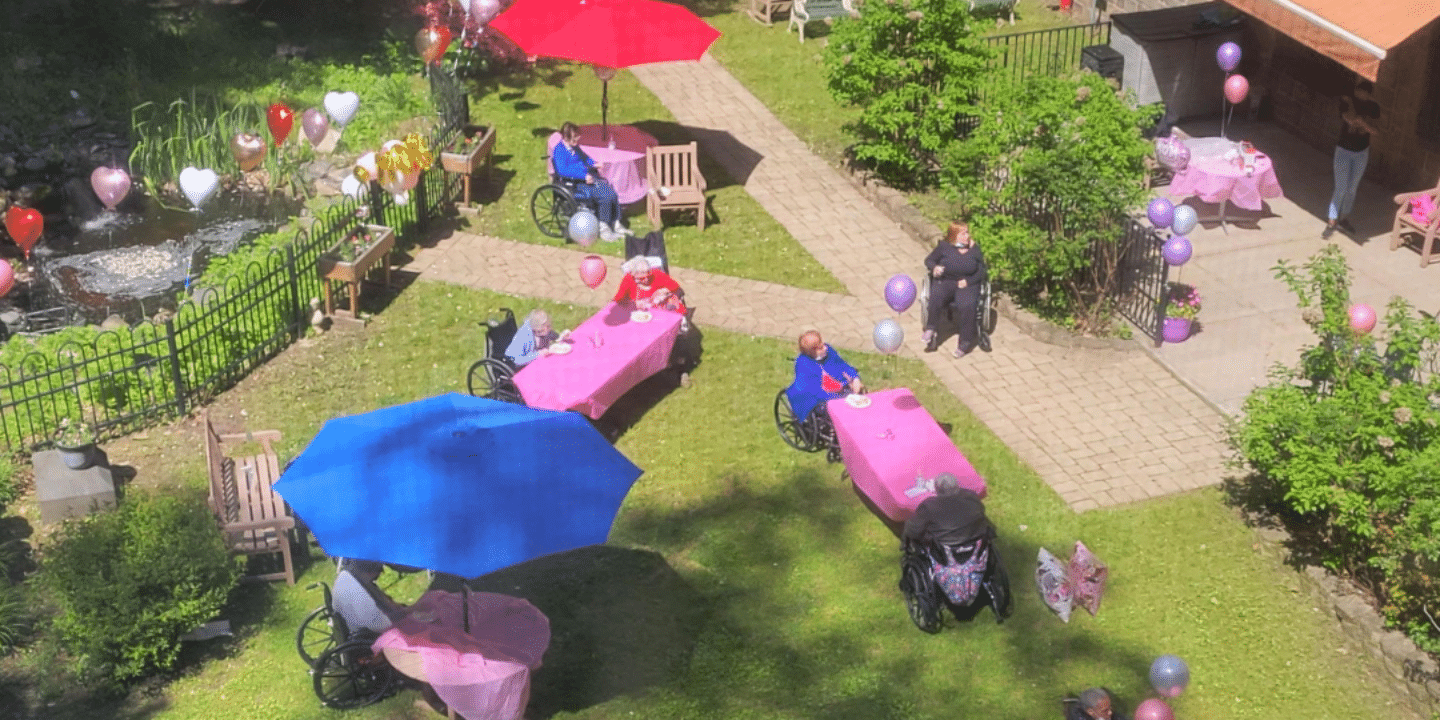Summer brings longer days and sunny skies, but for older adults, rising temperatures can also bring serious health risks.
Seniors are more vulnerable to heat-related illnesses like heat exhaustion and heat stroke because aging affects how the body regulates temperature. That’s why staying hydrated and cool is more than just a matter of comfort – it’s essential for summer wellness and safety.
Warning Signs of Heat-Related Illness
Recognizing the early symptoms of heat exhaustion or heat stroke can help prevent more serious complications. Signs to watch for include:
- Dizziness or lightheadedness
- Nausea or vomiting
- Rapid pulse
- Headache
- Confusion or disorientation
- Muscle cramps
- Excessive sweating—or, in the case of heat stroke, hot and dry skin
If you or a loved one experiences any of these symptoms during hot weather, seek shade or air conditioning, hydrate immediately, and call for medical assistance if symptoms don’t improve quickly.
Tips to Help Seniors Stay Hydrated and Cool
Here are a few simple ways to help prevent dehydration and overheating this summer:
Drink Water Regularly
Seniors may not always feel thirsty, even when their bodies need fluid. Make a habit of sipping water throughout the day – even before you feel thirsty. If you struggle with this, try setting reminders or using a favorite water bottle to help you build the habit. Flavoring water with citrus or cucumber can also make it more appealing.
Eat Hydrating Foods
Many fruits and vegetables are naturally high in water and can contribute to fluid intake. Enjoy seasonal favorites like watermelon, cucumbers, strawberries, cantaloupe, oranges, tomatoes, and leafy greens. These foods are not only refreshing but also packed with essential vitamins and minerals.
Wear Light, Breathable Clothing
Loose-fitting clothes made from natural fabrics like cotton and linen help the body stay cool by allowing heat to escape. Light colors reflect the sun’s rays rather than absorbing them, making a big difference in how warm you feel.
Avoid Outdoor Activity During Peak Heat
Try to limit outdoor time to early mornings or evenings when temperatures are lower. If you must be outside mid-day, stay in shaded areas, wear a wide-brimmed hat or use an umbrella, and take frequent breaks in air-conditioned spaces.
Stay Indoors When Possible
Air-conditioned indoor spaces are the safest option on especially hot days. Libraries, coffee shops, senior centers, and shopping malls are good alternatives if you don’t have air conditioning at home. At the Methodist Home, residents enjoy temperature-controlled indoor spaces throughout the summer.
Pay Attention to Medications and Health Conditions
Some medications can impact how your body handles heat or retains fluids. Conditions like diabetes, kidney disease, and heart failure may also increase your dehydration risk. Always speak with your healthcare provider about how heat may affect your health, especially if you’re on a special diet or taking diuretics.
Safe Summer Fun
At the Methodist Home for Nursing and Rehabilitation, we know how important it is to balance wellness and joy. That’s why our staff takes extra care during the summer months to plan safe, comfortable activities for our patients.
For example, in June we had an outdoor social planned to celebrate the first day of summer. Due to high temperatures that week, we moved the celebration indoors. Residents still experienced festive music, cool refreshments, and cheerful company – all in the comfort of air conditioning.
Our Commitment to Your Health and Comfort
From personalized care plans to nourishing meals and climate-controlled comfort, the Methodist Home is dedicated to keeping every patient safe and well during the summer months. Whether you or a loved one is recovering from surgery or preparing for a short-term rehab stay, our compassionate team is here for you.
Contact us today to learn more about our five-star rated care and how we keep our patients comfortable year-round – no matter the forecast.

